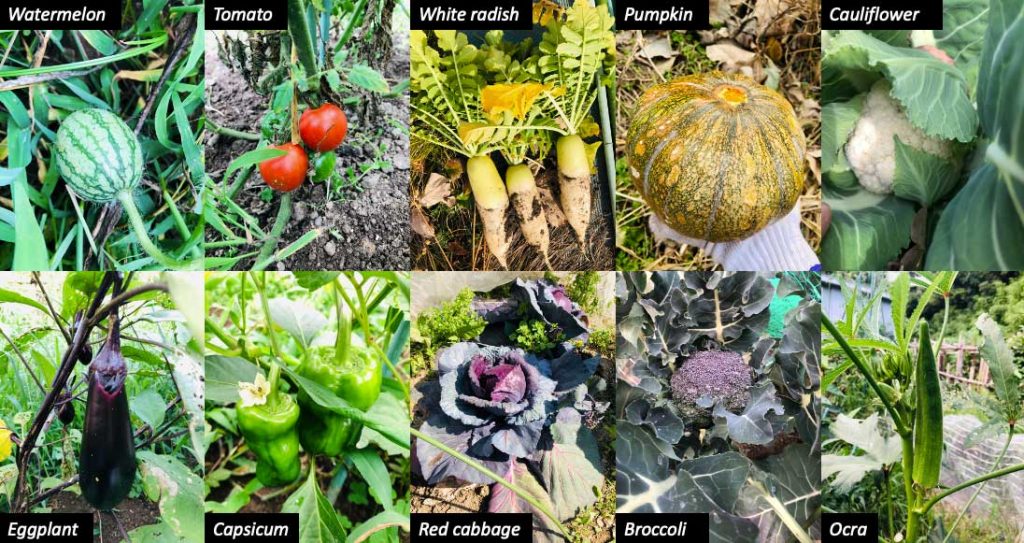In a world dominated by concrete walls and urban sprawl, Suzukakedai campus students have carved out a small green oasis. This humble sanctuary, known as the ‘gardening club’, serves as a gentle reminder of our food’s origins and a cherished bond with Mother Nature.
Imagine a day packed with lectures, group work, quirky seminars, and research time surrounded by chemical or mechanical experiments, or if your research is computer-based, with computers so powerful that they could predict your next caffeine craving and the rate and angle at which coffee will pass down your throat!
As your brainpower wanes, you head to the cafeteria to refuel. But have you ever wondered about the epic journey your food went through to end up on your plate? It might have faced more challenges than a reality show contestant on the way.
And let’s not forget the unsung hero, Mother Nature, supporting us every step of the way despite our recent not-so eco-friendly ways. The ingredients in our food, the gift of fresh air, the abundance of blue water, and even the paper for our genius equations and scientific publications – all provided by Mother Nature herself.
But take a moment to ponder: what if one day, the convenience of having everything at the tap of our fingertips and the massive supply chain simply disappears? Are we prepared to knock on Mother Nature’s door again and sustain ourselves? Do we possess the necessary experience and knowledge for such a challenge?
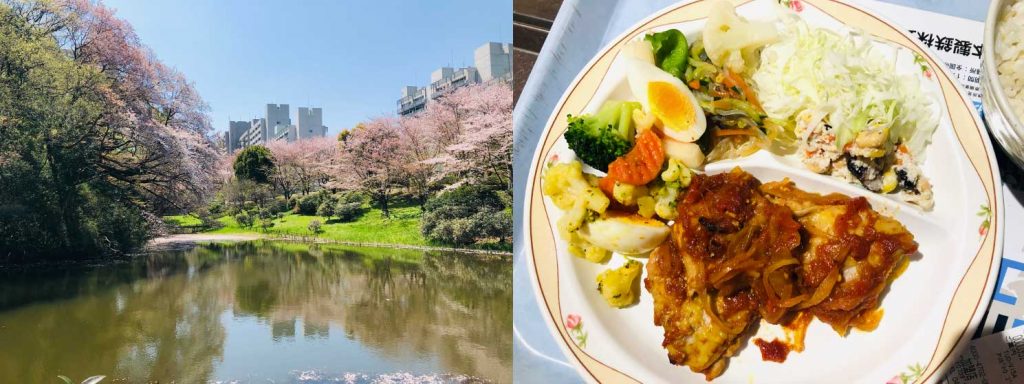
If you find yourself at the Suzukakedai campus, you might be a bit farther from the bustling city center where Ookayama and Tamachi campuses are (Suzukakedai is an hour train ride from Ookayama campus). However, fear not, for you are bestowed with the gift of tranquility and lush greenery every single day. And guess what? We’ve taken a wonderful advantage and turned it into something amazing – the gardening club!
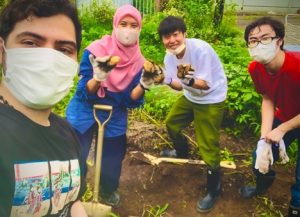
Run by enthusiastic students like us and a few supportive former members, the gardening club is where we embark on the journey of growing our own vegetables right here on our campus. Together as club members, we sow the seeds of teamwork and reap the harvest of scrumptious rewards. More than a decade ago, the gardening club sprouted to life as part of the School of Life Science and Technology’s activities. Since then, it’s grown to include students from all sorts of fields.
Tokyo Tech has a variety of fun student clubs at Ookayama campus, each with its own exciting vibe. Check out the list to find one that matches your ambitions and interests! If you happen to take a quick jaunt to our Suzukakedai campus, you’ll stumble upon our club flourishing as a delightful recreational escape, even if it’s not officially listed among the student clubs.
To an outsider, it might appear as just a charming little green garden, but to me, it signifies so much more. It’s a classroom of life, a sanctuary of learning, a nurturing ground for sustainable practices, a place to reconnect with nature, and a place that imparts valuable lessons about.
Mother Nature:
Every time my hands connect with the soil, it feels like I’m shaking hands with Mother Nature herself, reaffirming our unbreakable bond and friendship. Studying at the School of Environment and Society at Tokyo Tech has made me truly comprehend the weight and significance of these two words together. ‘Environment’ and ‘Society’ aren’t just random terms, but the keys to a profound purpose. As the sun sets each day, I am convinced that the path to a peaceful and sustainable future for generations to come lies in forging stronger connections between our society and the environment. It’s not just about studying theories and facts; it’s about embodying the values and putting them into practice.
(🙋♂️ Quiz time 🙋♂️ When was the last time you felt the earth beneath your fingers, strengthening that pact with Mother Nature? I’m eager to hear your stories, so don’t hesitate to reach out and share😉)
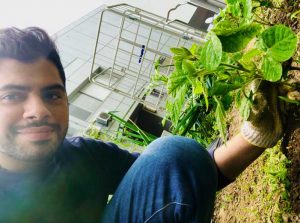
Food:
From harvest to dinner table, we grow and cook our vegetables. I guess knowing the dedicated effort that has been put into growing my vegetables makes my food tastier. Plus, once you realize how fresh your vegetables are, the temptation to cook them fades away and you can’t resist enjoying them as close to their pure, crisp, and natural form as possible! Food is more than just cooking; it’s a connection to the earth and the people who cultivate it. Appreciate the journey from farm to plate – it’s a celebration of nature!
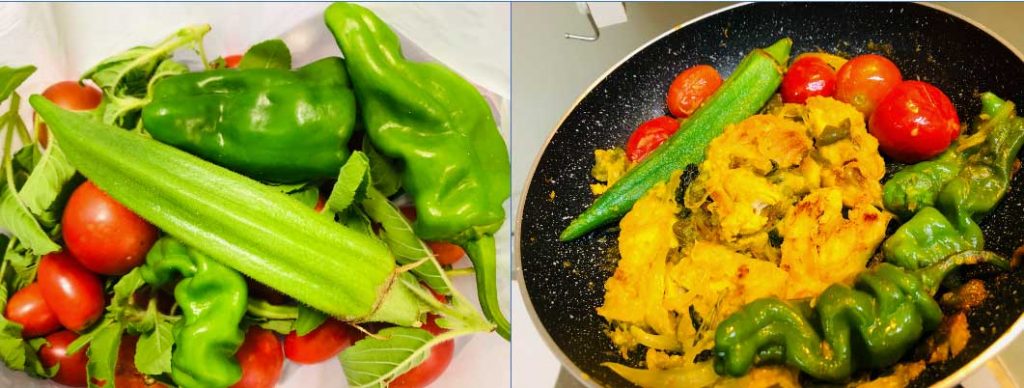
Friendship:
Majoring in Energy Science and Engineering, opportunities to meet students from other departments may be infrequent. However, the gardening club welcomes everyone, and it has been a fantastic way for me to make friends from diverse backgrounds. I have heard about incredible academic achievements at international conferences and shared laughs over hilarious experiment mishaps while harvesting potatoes!
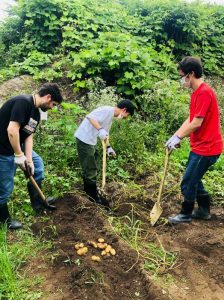
Language practice:
If you have just started learning Japanese, the Japanese classes at Tokyo Tech can help you get equipped with some survival language skills in no time. In my case, before joining the gardening club, I didn’t have a problem speaking Japanese, but it was in the gardening club where I took it a step beyond! Conversing with my Japanese friends there, I learned how to say things like ‘zassou (weeds)’ and ‘suko-pu (trowel)’ in Japanese, which you wouldn’t normally learn in classes. The experience goes beyond just gardening-related words. The club provides an excellent platform to practice Japanese with other members and even exchange language skills by teaching them English. Although sometimes we stumble upon things none of us know how to call in any language, which is like a comedic “Lost in Translation” moment.
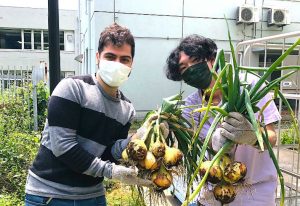
Other Cultures and Cuisines:
While gardening, we engage in fascinating discussions about various uses of leafy greens and vegetables in cuisines from around the world. Our club is a mix of international and Japanese students, allowing us to explore a rich tapestry of cultures. I have learned about Thai, Chinese, Singaporean, Indonesian, and Japanese cuisines, and it’s quite fun to compare and contrast their unique flavors and cooking techniques. Surprisingly, we sometimes discover that an appetizer in one country might be considered a dessert in another!
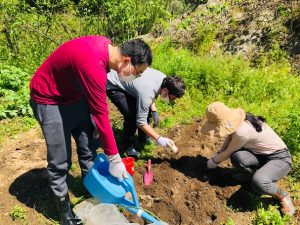
Sustainability:
Beyond the concrete giants and skyscrapers, lies a world of biodiversity crucial to our survival. Stepping into nature grants us a profound realization of its intricate web, where every unseen part plays a vital role in maintaining our existence on this planet.
To truly ensure sustainability, reading alone won’t suffice. We need to immerse ourselves in nature, observing and understanding the harmony between wildlife, insects, climate and more. Each element contributes to the beating heart of our ecosystem, and we must care deeply about the consequences our actions have on this delicate balance. Embracing the wonders of nature calls forth an obligation to protect it. Only then can we uphold the gift of life and cherish the beauty of a sustainable planet for generations to come.
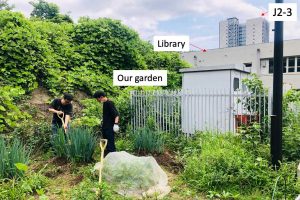
Life Lessons:
Nurturing needs patience and dedication. In the beginning, you may not see any results, but you hold onto your belief. Gradually, progress starts to emerge, and that motivates you to keep pushing forward. Along the journey, tough days will throw hurdles and hardships your way – cold, rainy, or scorching hot weather – but your vision of the end goal keeps you moving ahead.
When the time comes to harvest the ‘success’ of your labor, a profound sense of joy washes over you. You look back and appreciate yourself for enduring those challenging days. It’s a reminder that perseverance and faith in your efforts can lead to the most rewarding moments in life.
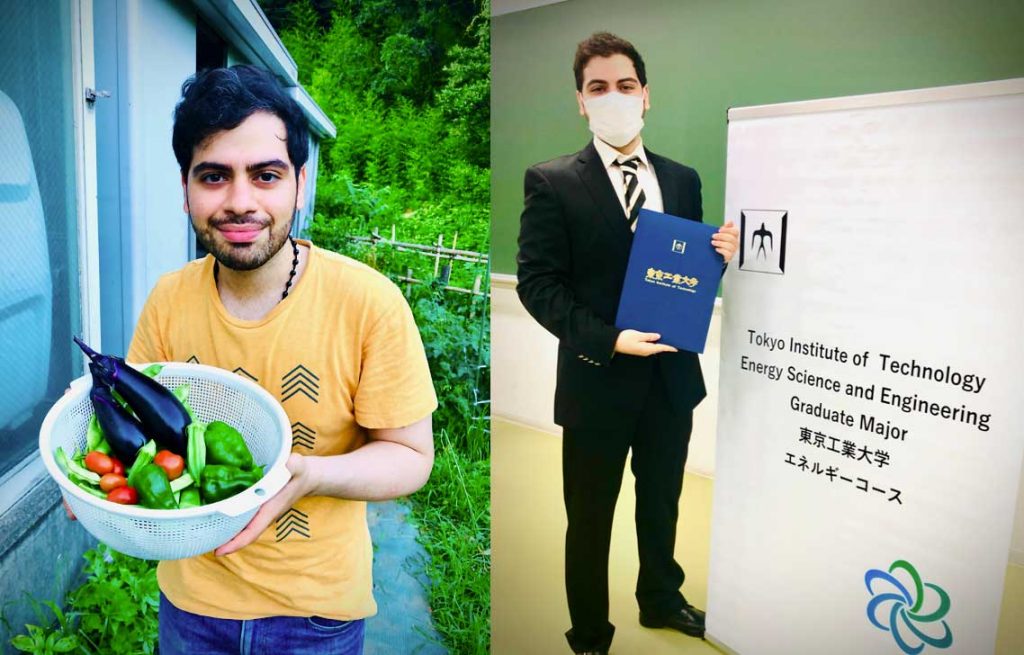
Being engulfed in a world of technology and convenience, it’s easy to lose touch with Mother Nature. The journey of our species has come as far as bringing us to the brink of a metaverse and virtual existence. But amidst this digital evolution, one crucial truth remains: we are still human beings reliant on physical sustenance.
No matter how advanced our virtual lives may become, its essential to remember that the foundation of our existence lies in the simple act of filling our stomachs with real, nourishing food. Without it, all the wonders of the virtual world would hold little meaning.
During my internship at UN-WFP, I had the opportunity to visit hardworking farmers in the countryside of Tajikistan, where they support their community with vegetables despite the rough conditions. Later, as I faced my own challenges in gardening, dealing with harsh weather and failed seed growth, a profound realization struck me. No matter how much technology advances or how virtual our lives become, the ultimate lifeline remains with the experienced and hardworking farmers who supply our food. They hold the power to determine our very survival.
As we contemplate the future where jobs in the metaverse may be highly sought after and well-paid, let us not forget the immense importance of farmers – the backbone of our sustenance – and their tireless efforts that ensure we have food on our tables. No matter how advanced our society becomes, their role in our daily lives cannot be replaced or undervalued. They deserve our utmost respect and appreciation for their vital contribution to our well-being and the very essence of life.
In conclusion, my experiences at the gardening club have led me to believe that Mother Nature truly cares for us. Every day, she provides us with an abundance of fruits and vegetables in various flavors and forms. She doesn’t owe us anything, yet out of her kindness and love, she nurtures us with such diverse gifts. In return, it is only natural that we reciprocate this love and care. Let us be more mindful of our actions and their impact on the environment. By respecting and cherishing this kind mother, we can ensure that her generosity continues to bless us and future generations. It’s time to embrace our role as caretakers of this beautiful planet and show our gratitude to Mother Nature for her boundless love and support.
